About I-tsu-tsu
Company Profile
Company Profile
| Company name | I-tsu-tsu Co. Ltd. |
|---|---|
| Representative | Akiko Nakakura |
| Headquarters | F-1, Fujishin Building 5F, 4-4-18 Kitanagasadori, Chuo-ku, Kobe, Hyogo 650-0012, Japan |
| Established | October, 2007 |
| Capital | 5,000,000 yen |
| Closing date | September 30 |
Business Activities
- Planning, development, sales and consulting of products and services, as well as activities to promote and educate people about Japanese traditional culture and traditional performing arts.
- Planning and operation of seminars, workshops, study groups, etc., and writing, publishing, and sales of books related to Japanese traditional culture and traditional performing arts
- Planning, operation, and consulting for projects aimed at regional revitalization, regional cultural exchange, research and analysis, etc.
- Organizing events such as lectures, symposiums, and seminars
- Planning, development, production and sales of educational materials, educational equipment and educational IT systems
- Planning, operation, and consulting of businesses for the purpose of education and learning support
- All operations incidental to each of the preceding items
Representative Profile
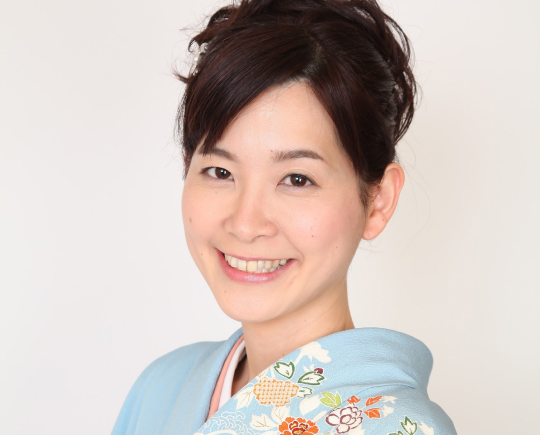
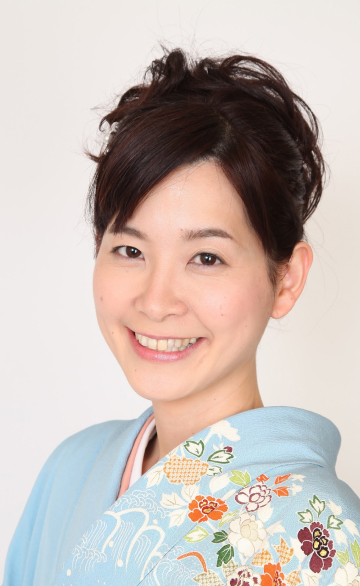

After winning the Women’s Amateur Meijin Tournament in 1991 and 1992, she made her debut as a professional women’s chess player at the age of 18. In addition to competing in official tournaments as a professional, she has also been active as a TV program host, hosting the NHK Cup Shogi Tournament and other events. She has a reputation for teaching children and is involved in the production of “Shogi Drills for Parents and Children” and “Shogi DVD for Beginners” for children, as well as the development of the WODDYPUDDY “Hajimete no Shogi Set”. She is widely involved in activities that combine Shogi with intellectual education and child-rearing, giving lectures to mothers raising children and promoting Shogi to children. In her personal life, she is a mother of three children, and she struggles to balance child-rearing and work. Her essays on child-rearing have appeared in seven local newspapers and are currently serialized in the Tokyo Shimbun and Chunichi Shimbun. Her philosophy is to “bring fun, surprising, and authentic traditional Japanese culture close to children all over the world. Graduated from Hosei University, Faculty of Human Environment.
Greetings from the President
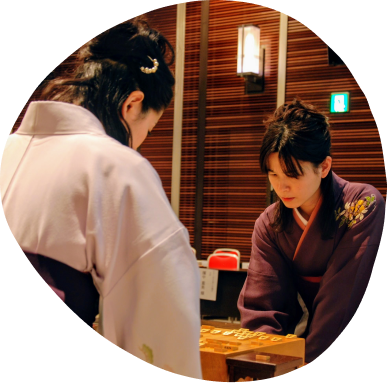
Hello, I am Akiko Nakakura, a Shogi (Japanese chess) player. My name is Akiko Nakakura, a Shogi (Japanese chess) female player.
I was taught Shogi by my father when I was 6 years old. I started playing with my younger sister who is 2 years younger than me, and in the first year of high school, I joined the “Inclusion Association”, a training organization for women’s shogi players. In my third year of high school, I became a “joryu-kishi” (women’s chess player). Since then, I have been an active player for 21 years. Looking back, although it was a tough world of competition I have learned so many things from Shogi.
I have lived in the world of Shogi, and while the professional world is one of winning and losing, there is much more to it than just winning and losing. I realized the value of Shogi when I taught Shogi to children. I believe that not only Shogi but also any other game can have various values if we understand it deeply and look at its essence.
I have lived in the world of Shogi, and while the professional world is a world of winning and losing, there are many values other than winning and losing. I realized the value of Shogi when I taught Shogi to children.
I believe that not only Shogi but also any other game can have various values if we understand it deeply and look at its essence.
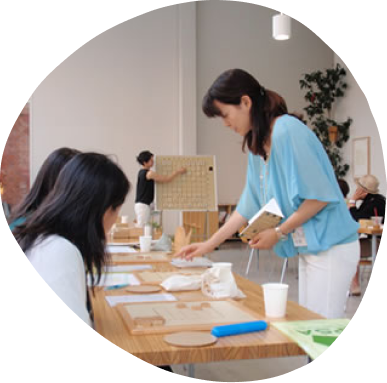
The other day, I demonstrated a game of Shogi in front of many children. The children, who had been enjoying themselves until then, became quiet and stared at us as soon as we sat down in front of the board. I realized that it is very valuable for children to experience the atmosphere of Shogi, which cannot be explained by words alone, and that it is an important step for them to understand Shogi better.
Although I am not an outstanding chess player, I was honestly surprised that I was able to provide a rare experience for the children who saw me demonstrate my game. At the same time, I felt the significance of showing more of us as professionals and of giving children the opportunity to be exposed to professionals in other fields as well.
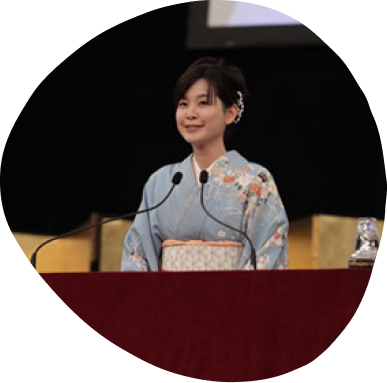
Japanese culture, including Shogi, contains many values. Just as there is value in Shogi other than winning and losing, I believe that there is a lot of value in other traditional Japanese cultures that we cannot feel just by touching them on the surface.
It would be a waste to grow up without knowing this. We live in a digital world today, but I believe that there is value that can be felt by coming into contact with the analog world, and that life can be richer if we come into deeper contact with it rather than superficially.
Through the activities of Itsutsu, I too hope to come into contact with many values that I have yet to discover. I also hope that as many children as possible can experience the beauty of Japanese culture and pass it on to the next generation.
Akiko Nakakura, Representative Director of Itsutsu Co. Ltd.
If there is anything we can help you with,or you have any questions,
please do not hesitate to contact us.